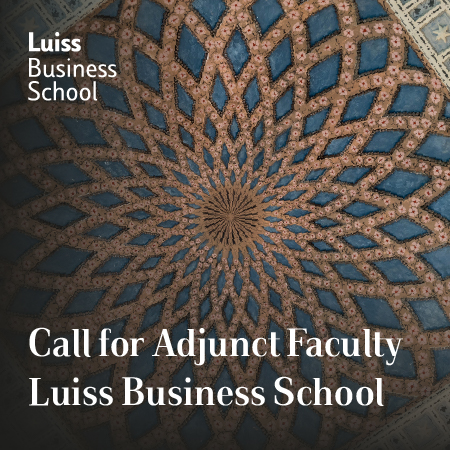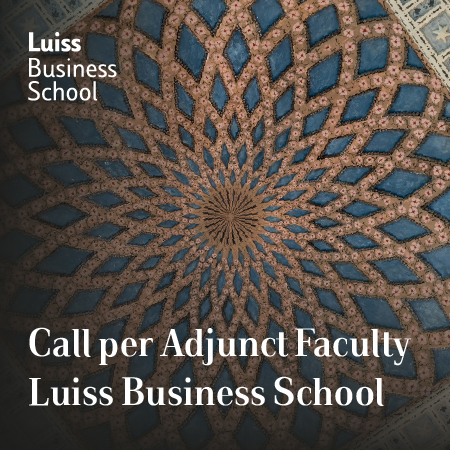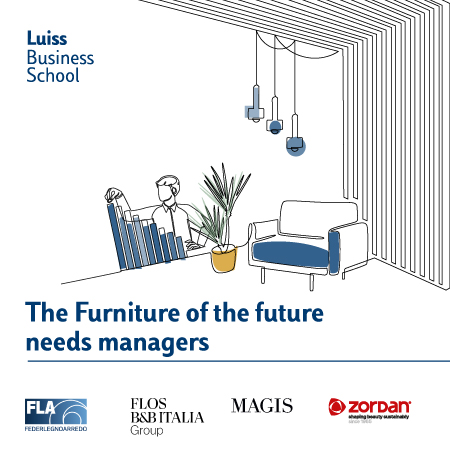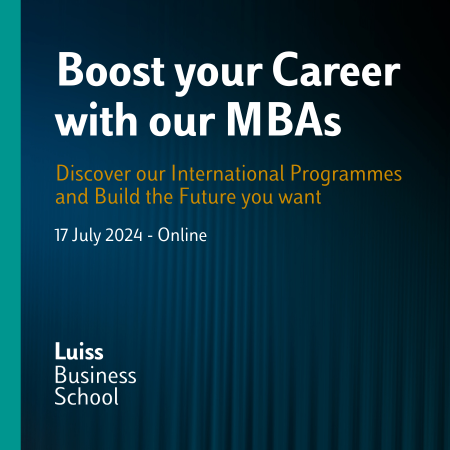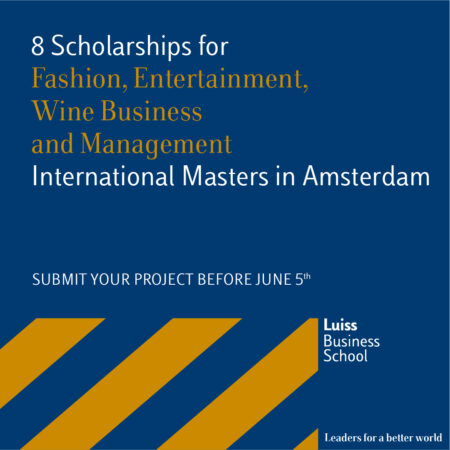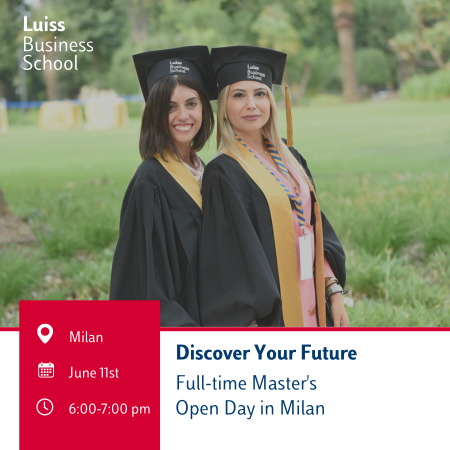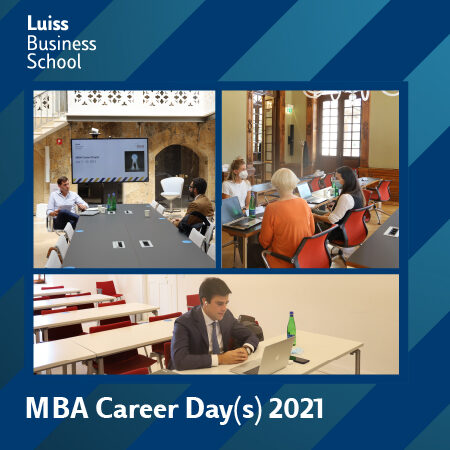19 July 2024
Luiss Business School is pleased to announce the upcoming Online Open Evening dedicated to the Full-time Master programs, which will be held on Monday, September 9th, from 4:30 PM to 5:30 PM.
During this event, you will have the opportunity to explore the content, structure, and services offered by the Luiss Business School Full-time Master programs, designed to prepare you to face the challenges of the global job market. You will be able to interact with our team of experts and discover how our courses can help you develop the skills necessary to build a successful career.
AGENDA
Presentation of the educational offer
Q&A session
Breakout rooms to learn about the different areas of specialization in detail and meet the Coordinators, Career Service, International Office, and Recruitment Office
Participation in the webinar will also exempt you from paying the registration fee of €75 for the upcoming selection dates: September 12, 13, 26, and 27, 2024.WHEN: Monday, September 9, 2024TIME: 4:30 PM – 5:30 PMWHERE: Online
Participation is free, but places are limited. Register now to secure your spot and start building your future with Luiss Business School!
REGISTRATI
